Information Box Group

Canadian Guidelines for Post-COVID-19 Condition (CAN-PCC) Read More
Current
Our team, with financial and scientific support from the Public Health Agency of Canada (PHAC), will develop six evidence-based guidelines on post-COVID-19 condition using rigorous scientific methods. Our goal is to use the best available evidence to provide clinicians, decision-makers, policymakers, and the public in Canada with detailed guidance to make informed health decisions about post-COVID-19 condition (PCC). We intend to prioritize topics that are most important to these audiences through a careful and inclusive process, while also considering the needs of equity-deserving groups.
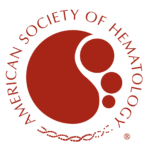
American Society of Hematology COVID-19 Living Guidelines Read More
Current
MacGRADE Centre and Cochrane Canada faculty and staff have been leading living systematic reviews for living practice guidelines on the use of anticoagulation for prevention of thrombosis in COVID-19 patients, as commissioned by the American Society of Hematology since 2020, and this work is still ongoing. Several methodological innovations have been used during this process, including steps to optimize the living process, the use of machine learning to improve the feasibility of screening a large body of evidence, and the application of decision thresholds.

eCOVID-19 RecMap Read More
Current
Cochrane Canada launched eCOVID-19 RecMap, or COVID-19 Recommendation Map and Gateway to Contextualization, an interactive, easy-to-navigate, living, and freely accessible online repository of quality-appraised COVID-19 recommendations. This CIHR-funded resource is made freely available to guide clinicians, policymakers, and citizens in response to the pandemic.
Urologic Guidelines
Current
Cochrane Canada is working with the European Association of Urology and the Canadian Urological Association to synthesize evidence and produce guidelines for screening and diagnosis of hematuria to prevent urologic cancers.
Allergic Rhinitis and its Impact on Asthma (ARIA) Guidelines Read More
Current
Faculty of the MacGRADE Centre have been leading the development of the international Allergic Rhinitis and its Impact on Asthma (ARIA) guidelines since 2010. The current project is the 2024 update of the guidelines. ARIA are arguably the most frequently used worldwide guidelines about the management of allergic rhinitis (hay fever).
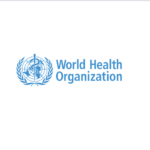
WHO Fertilty Guidelines
Current
Our team at Cochrane Canada have been working with WHO on guidelines for diagnosis and treatment of infertility since 2019. We have conducted multiple systematic reviews and completed evidence-to-decision tables to facilitate and inform the guidelines.

WHO STI Guidelines and Systematic Reviews
Current
Cochrane has produced a number of systematic reviews for the World Health Organization (WHO), including recommendations for the management of symptomatic sexually transmitted infections and screening and treating cervical pre-cancer lesions for cervical cancer prevention.
European Commission Initiative on Colorectal Cancer (ECICC) Read More
Current
As part of the European Commission’s Joint Research Center (JRC) in the context of the European Commission Initiative on Colorectal Cancer (ECICC), we coordinated a systematic review of analytical frameworks concerning ColoRectal Cancer (CRC). We also coordinated a systematic overview of CRC guidelines and recommendations with a mapping exercise of possible questions that may be relevant for CRC prevention, screening, and diagnosis. Further work is being done to develop an analytical framework for the ECICC CRC guideline.

WHO EML and Guidelines: Recommendation Mapping and Fit Analysis
Current
This project aims to identify and address discrepancies and overlaps in medicine recommendations and indications between the WHO Essential Medicines List (EML) and WHO guidelines, to inform strategies that enhance WHO EML-guideline alignment, increase the EML’s responsiveness, and enhance equitable access to and use of essential medicines in global and national healthcare decision-making.
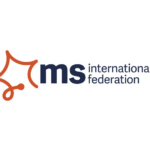
Multiple Sclerosis International Federation MS Essential Medicines Panel Read More
2023
We contributed to the development of international guidelines to prioritize submission to the World Health Organization Essential Medicine List on essential medicines to treat Multiple Sclerosis.

American Society of Hematology VTE Guidelines Read More
2023
Our team led the development of guideline methodology for the American Society of Hematlogy and production of ten guidelines on prevention, diagnosis, and management of venous thromboembolism.

WHO Multidrug-resistant Tuberculosis Guidelines Read More
2023
Our team supported guideline development and methodology for the 2022-2023 update of WHO consolidated guidelines on tuberculosis: drug-resistant tuberculosis treatment. The guideline development work included applicaiton of the GRADE approach and methods such as collection of ‘expert-evidence’ to support formulation of recommendations on treatment of tuberculosis.

WHO Recommendations Map of Guidelines on the Prevention and Care of Tuberculosis (TB) Read More
2022
Our team developed a recommendations map of guidelines on prevention and care of TB with capacity building of WHO trainees in guidelines development and adolpoment.
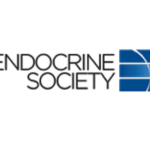
Endocrine Society Read More
2022
Guideline methodologists from our team supported Endocrine Society guideline panels in the development of three clinical practice guidelines on Hyperglycemia, Hypoglycemia, and Hypercalcemia of malignancy, which followed GRADE methodology.
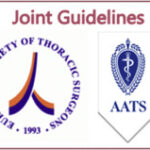
Joint 2022 European Society of Thoracic Surgeons (ESTS) and The American Association for Thoracic Surgery (AATS) guidelines for the prevention of cancer-associated venous thromboembolism in thoracic surgery Read More
2022
Our team supported the methodology and development of the first thoracic surgery-specific venous thromboembolism prevention guidelines produced in a joint collaboration between ESTS and AATS, issuing 24 recommendations.
